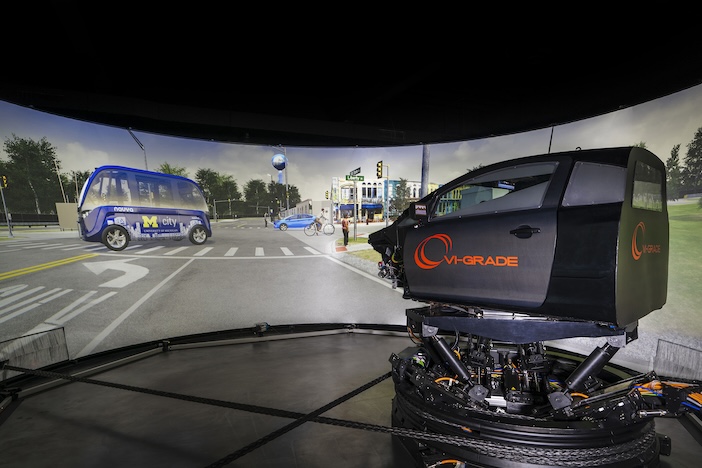VI-grade, a specialist in human-centric, simulation-driven vehicle development technologies, today launched VI-ZeroLatency, an AI-based compensation algorithm based on Sybille technology supplied by AddFor, a specialist in AI systems.
According to VI-grade, when the AI (artificial intelligence) algorithm is integrated within the VI-DriveSim software suite, it can ensure near-zero delays across subsystems, enhancing the performance of driving simulators and, in the future, remote Hardware-in-the-Loop (HiL) applications.
VI-ZeroLatency leverages AI to predict real-time signals from key driving simulator components, such as the motion platform, graphics and sound. By employing pre-trained machine-learning models, the solution anticipates subsystem responses, allowing for a more realistic driving experience.
The developers say the AI algorithm is designed to deliver smoother feedback and minimise disturbances caused by latency, enhancing the overall performance of simulators. Looking ahead, VI-ZeroLatency can also facilitate the remote connection of a vehicle model with a driving simulator or an HiL test bench in different locations, facilitating global collaboration among vehicle development teams.
VI-ZeroLatency is fully compatible with all VI-grade simulators, requiring no extensive hardware upgrades, making it a cost-effective solution for users looking to enhance their simulation capabilities. As part of VI-DriveSim, the algorithm integrates easily with VI-CarRealTime, VI-WorldSim, VI-SimSound and VI-MotionCueing, ensuring comprehensive, real-time simulation across multiple platforms. VI-ZeroLatency also supports third-party vehicle models.
“Reducing latency is essential to delivering a more accurate and realistic simulation experience”, said Guido Bairati, managing director at VI-grade. “By integrating artificial intelligence, VI-ZeroLatency takes our simulation solutions to the next level, eliminating noticeable delays and bringing our simulators closer to zero latency. This AI-driven advancement, implemented in collaboration with AddFor, ensures that our customers are equipped with state-of-the-art tools for efficient and accurate virtual vehicle testing.”





